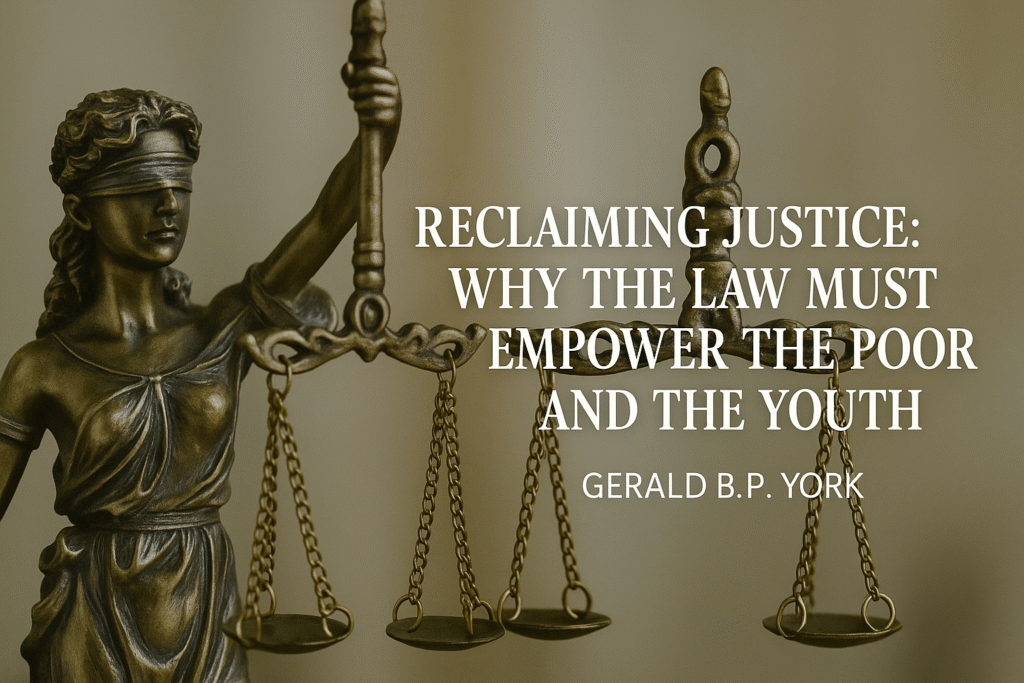Introduction
The law is often described as the backbone of civilization. Yet for many, it does not feel like a shield of justice but a sword of punishment. Across the world, a paradox exists: while law schools prepare young professionals for careers of influence, poor and marginalized youth encounter the law as their greatest obstacle.
If justice is to be meaningful in the 21st century, we must confront this paradox and transform the law into a tool of empowerment for those who need it most.
The Divide in Law
In the halls of prestigious law schools, the law is studied as theory, principle, and pathway to leadership. These institutions open doors to careers in government, corporations, and courts of power. Yet access remains limited to those who can afford the cost, endure the competition, or benefit from social privilege.
Meanwhile, in poor communities and ghettos, the law appears not in books but in handcuffs. Criminal law governs daily life — stop-and-search, minor charges, courtrooms, and prisons. For youth in these environments, the law is not opportunity but control. It is not empowerment but exclusion.
This dual reality reveals the deepest contradiction in our legal systems: law schools create the lawmakers, while criminal law creates the broken lives that lawmakers often ignore.
Justice Must Be Reimagined
If we are serious about justice, we must reimagine its role in society. The law must serve as:
-
A shield of protection for the vulnerable, not a weapon of punishment.
-
A bridge to opportunity, not a barrier to dignity.
-
A tool of empowerment for the poor, not just a privilege for the wealthy.
This requires a radical shift in how we educate future lawyers and how we enforce criminal law. Legal education must prepare students not only for boardrooms but for communities. Criminal law must move beyond punishment to rehabilitation, fairness, and respect for human dignity.
A Vision for Youth Empowerment
At Global World Citizens, our mission is to bring law and justice to the people who need it most. We believe poor youth must be taught their rights, given access to legal literacy, and inspired to see law as a tool they can use to protect themselves and their communities.
The next generation must not inherit a legal system that traps them — they must inherit a system that frees them. By bridging the gap between elite legal education and the realities of criminal law, we can create a legal order that belongs to all.
Conclusion
Justice must not be reserved for those who can afford it. Justice must not be a privilege of the elite. It must be the right of every human being, regardless of income, race, or background.
The task before us is clear: to reclaim justice as a universal principle, to make the law a common shield, and to empower the youth who will inherit tomorrow.

Byline:
Gerald B.P. York
Founder & CEO, Global World Citizens


